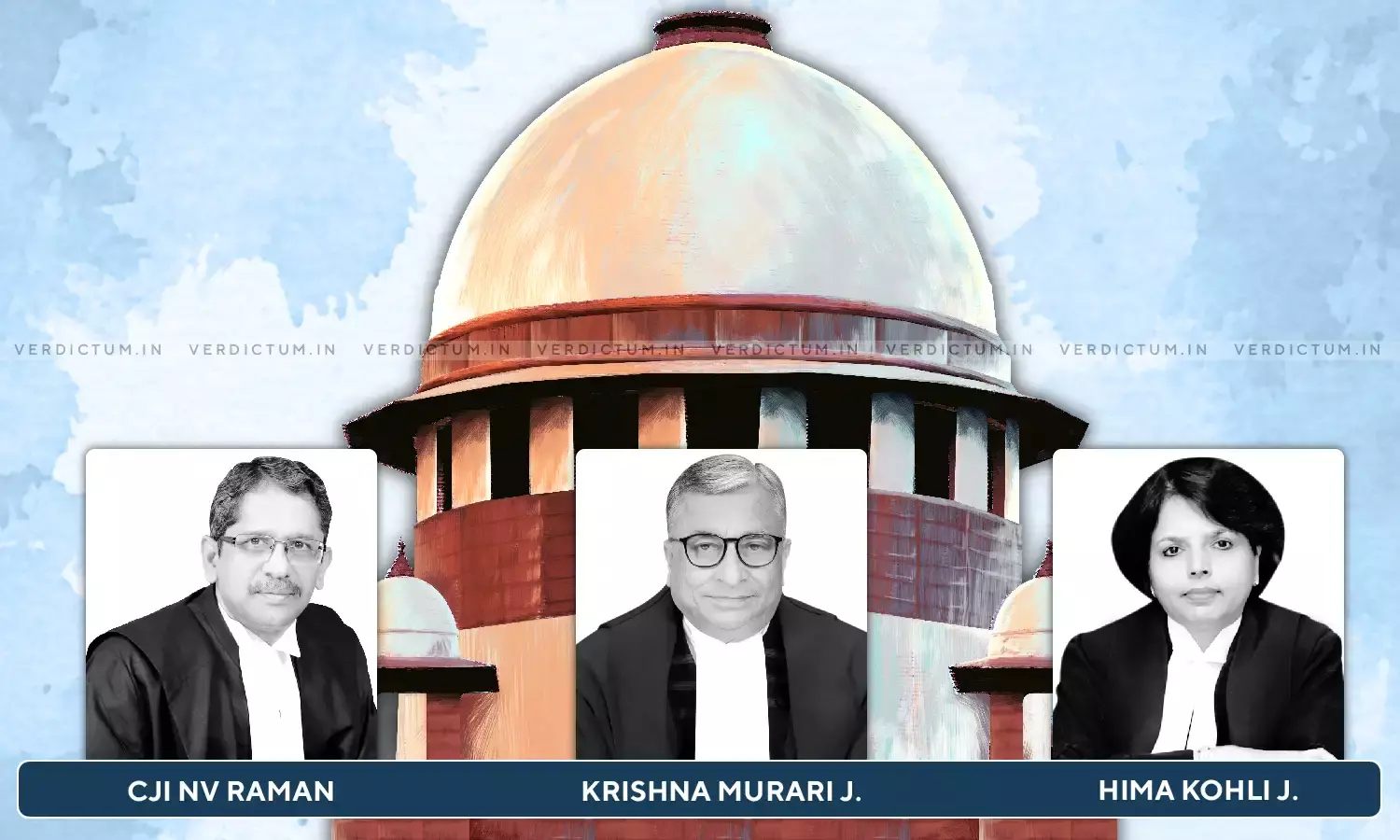Section 106 Evidence Act Applicable To Cases Where Chain Of Events Has Been Successfully Established By Prosecution —SC
A three-judge bench consisting of CJI N.V. Ramana, Justice Krishna Murari and Justice Hima Kohli dismissed an appeal, holding that Section 106 of the Indian Evidence Act applies to the cases where the chain of events has been successfully established by the prosecution.
In this case, the accused and their daughter challenged the order of the Sessions Court where they were held guilty for offences under Sections 302, 201, 109 and 34 of the Indian Penal Code and sentenced to rigorous lifetime imprisonment, in the Odisha High Court. The High Court allowed the application and confirmed the conviction of the accused-appellants while acquitting the daughter of all charges. It modified the conviction of the accused from under Section 302 Of IPC to Section 304 of IPC and sentenced them to rigorous imprisonment for a term of five years.
This case was an appeal against the order of the Odisha High Court.
ISSUE
The key issue, in this case, was whether the prosecution had successfully discharged the burden of proof and that the chain of events had been successfully established so as to attract the application of section 106 of the Evidence Act.
The Supreme Court referred to Section 106 of the Evidence Act and observed that "Section106 of Evidence Act postulates the burden of proving things which are within the special knowledge of an individual is on that individual. Although the section in no way exonerates the prosecution from discharging its burden of proof beyond reasonable doubt, it merely prescribes that when an individual has done an act, with an intention other than that which the circumstances indicate, the hunas of proving that specific intention falls on the individual and not on the prosecution. if the accused had a different intention that the facts I've specially within his knowledge which he must prove."
The Bench relied on the judgment in the case of Trimukh Maroti Kirkan V. State of Maharashtra where it was held that section 106 applies to the cases where the chain of events has been successfully established by the prosecution and from which a reasonable inference can be made out against accused.
The Supreme Court also opined that the High Court rightly observed - " The prosecution had succeeded in establishing intention of the balance for the Commission of the offence. Such an intention, when analysed in the light of the statements made by all the set of witnesses and fatal injuries sustained by the deceased at the relevant place in time certainly makes out a strong case that the death of the deceased was indeed caused by the appellants. Therefore, once the prosecution had successfully established the chain of events, the burden was on the appellant's to prove it otherwise."
Thus, the Supreme Court dismissed the appeal and held that the entire sequence of events strongly points toward the guilt of the accused-appellants and the appellants have failed to offer any credible defence so there was no error in the judgment of High Court.
Click here to read/download the Judgment




